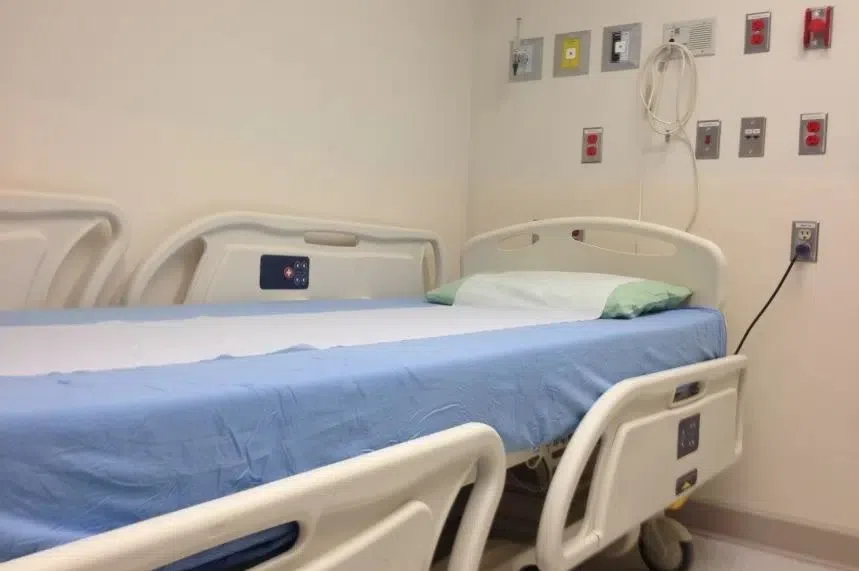Concerns around healthcare have been a topic of discussion in Saskatchewan for quite some time.
Doctors have called it “a mess,” doctors are leaving rural communities, healthcare workers are receiving late payments and others have simply lost hope.
Now, people are struggling to find a family doctor. This shortage of doctors is impacting smaller clinics.
Patients seeking cervical cancer screenings are overwhelming the Saskatoon Sexual Health clinic. Candice Klein, executive director of Saskatoon Sexual Health, joined The Evan Bray Show to share more about what she’s seeing happen at the clinic.
Listen to the full interview here:
The following transcript has been edited for length and clarity.
Bray: Is the doctor shortage impacting your business?
“Yes, we’re seeing this really overwhelming serge in the clinics, specifically for cervical cancer screenings which are incredibly important part of healthcare in general. Early detection of cancer is really the best treatment outcome. For folks to come in and get this service done at our clinic is really important and we’re really seeing the pressure on that because of the doctor shortage for sure.”
How is this over-capacity affecting you? Are there waitlists? Are patients being booked in advance?
“Currently for cervical cancer screenings alone, there is a two to three-month wait now and actually our clinic is operating over capacity at 125 per cent per day. So the numbers are really overwhelming here. Part of this issue is there’s some funding issues around that as well. We don’t receive the same funding that medical clinics that are fully funded by the region. We don’t get that same kind of funding so we are filling this massive gap with less funding, less availability but we’re still doing what we can to meet those needs. We really care about our patients. We really care about people in Saskatchewan. We’re making sure that they get the healthcare that they need and that they’re entitled to.”
Are there not enough doctors to do the tests? Or are doctors no longer providing this kind of testing?
“It’s both. Doctors are retiring and they’re moving away. We’re especially seeing this in rural regions, the retention is really an issue there. We’re also seeing doctors refusing to perform the service. Every day we have clients come in for this service who say, ‘My doctor says they’re no longer performing it.’ Part of that issue is that fee for service. Our nurse practitioners and registered nurses are very skilled. So we can do a cervical cancer screening in 15 minutes or less. But for a lot of doctors, it’ll take them a little bit longer, so they only receive payment for that 15-minute appointment. So that’s part of that incentive to send them elsewhere. We’ve had lots of people send their clients specifically to our clinic because they know that we do really great quality care and we offer a trauma-informed service as well for folks who might have trauma in their past that might make screenings like this a little bit difficult.”
Is part of the solution to have more nurse practitioners in the province?
“Absolutely. There’s something about nurse practitioners and in their training that encompasses the knowledge of a doctor but also have that additional nursing side to their training where there just seems to be a better understanding of the individual as a person rather than just this numbered patient. I think that’s a really great solution to this issue is increasing the services that nurse practitioners can provide to folks in the province and really is a cost-effective solution as well.”
What’s the next step — does the province need more doctors, better retention, funding, etc.?
“I think it’s a multifold answer. It does include recruiting doctors, making the rural practices have more incentives to be there and stay there, also increasing funding to clinics like ours because we are more than happy to take care of this service for the province, but as it stands we just need funding. We don’t receive enough funding to perform the services that we’re supposed to perform. We’re happy to provide that service but funding clinics like ours are really important step to make sure that we’re filling these major gaps in the healthcare system.”
Are you seeing other areas of concern in the healthcare system? What tests are being missed or delayed?
“We’re seeing a concerning area across the spectrum of reproductive and sexual health. We’ve been in a syphilis and HIV epidemic since 2019. There aren’t that many clinics that advertise their services for testing and treatment of those. But we’re a clinic that does that. When it comes to prostate exams we also do something that’s called an anal pap, it’s also a cancer screening and preventative service and that’s really important for men to do. It’s just this larger, all-encompassing area of pressure across the healthcare system but especially around sexual health and reproductive health. It’s sort of the last area that the government tends to focus on in terms of services but it’s actually a really crucial part to the healthcare landscape. People don’t realize how important reproductive and sexual health is to cancer and cancer rates in the province.”
We talked a lot about challenges, but your number one message right now is to make sure people get their screening done?
“Early detection is so important for case outcomes for individuals. Making sure that cancer is caught within the early stage is super crucial to someone’s health and development over time. It’s also important and crucial to taxpayers at the end of the day. It’s much cheaper to actually provide funding upfront for clinics so we can get those early detections in and get those tests that are concerning for us, we can get them into oncology faster, we can get people referred faster, it’s just better overall.”












